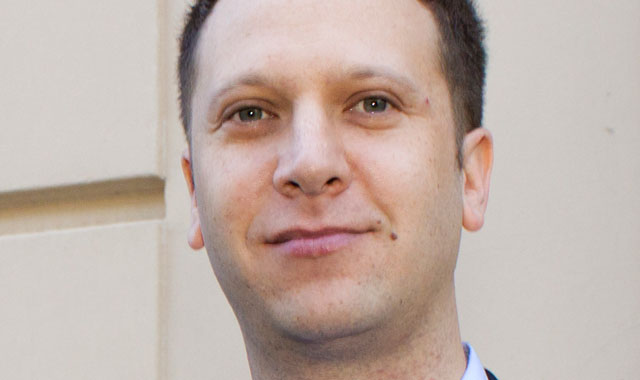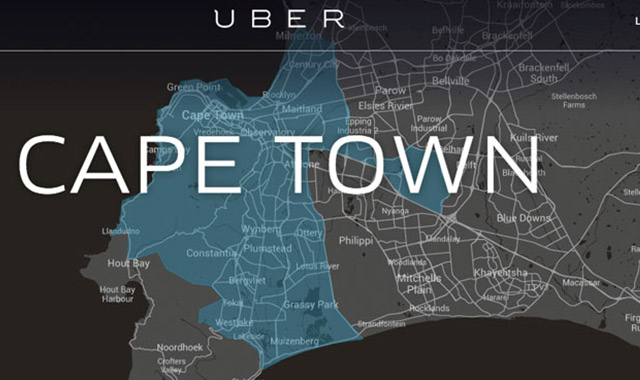
Uber’s GM for sub-Saharan Africa, Alon Lits, shares some insights with Nastassia Arendse into the company’s expansion plans.
Arendse: Uber Africa’s emergence as one of the continent’s more reliable transit networks has created potential to move more than just people. However, Uber’s rise has not come without friction in certain African markets. Take us through what you think of Africa’s growth right now.
Lits: We are extremely excited with the prospects across the continent. We’ve recently launched three markets in three countries in June this year and these cities are among our fastest growing within the region. We are extremely bullish of the prospects for Uber on the continent in general.
Arendse: I know a lot of people talk about disruption and Uber as one of the disruptors. What’s your view on disruption and its opportunities?
Lits: I think it’s just looking at existing problems with a slightly different mindset. I think the reason why Uber has been successful is that we question the status quo and we’ve created a way for people, no matter where they are in a city, to access safe, reliable and affordable rides within minutes. I think for the segment of the market that would have previously relied on their car before Uber was launched in many of these markets, they wouldn’t have considered using a public transport solution, whereas today no matter where you are in our cities you do have access to public transport through the Uber application.
Arendse: When you want to enter new markets in Africa, what do you and your team take into consideration?
Lits: Being a technology platform first and foremost, we are lucky that we can track the number of downloads of the application in a particular country before we launch. So that already gives you quite a strong proxy for what the demand of the product may be if you were to go forward with the launch. In addition to that, through our technology and our data platforms, we can track the number of people opening the application in a particular country or a city looking for an Uber ride. So those metrics give us a good understanding of potential demand in a new market. In addition to that, we would obviously do a trip to a particular city to get a sense of what the alternatives are in that city before we launch, what the potential supply pool of drivers and vehicles would look like and very important to our business models, what does that regulatory framework look like in a model? I think just broadly speaking, similar to any other company, we would look at population dynamics, number of smartphone users in a particular city, Internet penetration and GDP per capita.
Arendse: In terms of common misconceptions I know that when investors look at Africa, yes, they know there is risk but what’s encouraging is that when they view certain countries they don’t just paint the country with the same brush as any others, the jurisdictions are very different. What do you think are some of the common misconceptions about Africa?
Lits: I think one of the misconceptions is that there is a talent gap and that it’s difficult to find good people. We’ve hired strong local teams in all cities where we operate. In some cases, it’s taken a bit of time to find the right people, but we’ve found exceptional talent across the content and I think that has been part of Uber’s success. Yes, we are a global company, but we always have local teams who enable us to scale and enable us to grow the business. In addition to that, there are often concerns around infrastructure and the ease of doing business – yes, those are realities and, in some cases, it has been challenging, but none of these factors are deal breakers and it is possible to scale a business in multiple cities across the continent.
Arandse: The greatest thing about success is that there are a lot of lessons learnt, where you improve and you moderate things here and there and you adjust as you go on. From your perspective, what would you say were some of the mistakes that you made on the ground and how did you recover from those?
Lits: First of all, if we look at our launch in South Africa and I compare it to a recent launch in Ghana, as an example, when we launched in South Africa obviously soon after our launch we did engage with the regulators to better explain how the Uber application worked, better explain how the app helped riders and drivers across cities. But I think it was almost too late. We should have engaged with regulators before we launched. So, we applied those learnings to the newer markets that we have recently launched in and it’s changed the dynamic. When we launched in Accra, we were able to sign a statement of understanding with the minister of transport on the day that we launched the product there, really showing commitment from our side and the government’s side to move towards regulation, which removes ambiguity around the way that Uber partner-drivers operate.

It was also showing them the benefits that we could bring to Accra over time and that helped us scale the business there, and it helped us avoid and minimise conflict with existing operators, getting them onto the platform upfront, versus maybe a more delayed engagement in South Africa, where it has taken us longer to get existing operators onto the platform, which is happening today. But I think the big learning there for us was to engage upfront, remove those misperceptions upfront and the earlier you can engage the better for the business in the long term.
Arendse: In terms of new markets, where are you seeing opportunities right now?
Lits: For the balance of the year, we are focused on our existing countries. We are seeing strong growth from all existing markets, and we still think there is huge growth and upside to come. That said, we are exploring further expansion across francophone Africa. We are not in any francophone cities at this stage, but we will hopefully be evaluating some options there with a view to launch in early 2017.
Arendse: Outside of that, what top priorities will you be focusing on?
Lits: I’m sure you would have seen that we launched the UberEats business in Johannesburg and we’ve really been blown away by the response and the excitement around that product. I know last-mile delivery is something that people always talk about across African cities and they cite that as a big challenge to completing e-commerce, as an example, and we’re now at a point across our cities where in most cases in an average time of roughly five minutes you can get a car to pick up that person and then deliver that person to a location. So, once you have that network across the city, the question is what else can you deliver? That’s exciting for us.
Arendse: What keeps you up at night? What do you worry about?
Lits: We’re always thinking about what the next disruption opportunity is. We are thinking about disrupting ourselves. I think, if we are not thinking about disrupting ourselves then someone is probably thinking about a product that could completely disrupt our business model. So, we are always trying to plan for the future, where is the business heading, where can we improve and how can we be better?
Arendse: In the next five years where would you like to see the business?
Lits: Globally as a company we say that we want to be in as many cities around the world with a population of at least 200 000. So, if you think about that in the lens of the continent, there are so many cities that could have Uber in them. I would just like to see Uber across more cities across the continent in the coming years and we think the potential on the continent is huge.
- This interview was originally published on Moneyweb and is used here with permission

